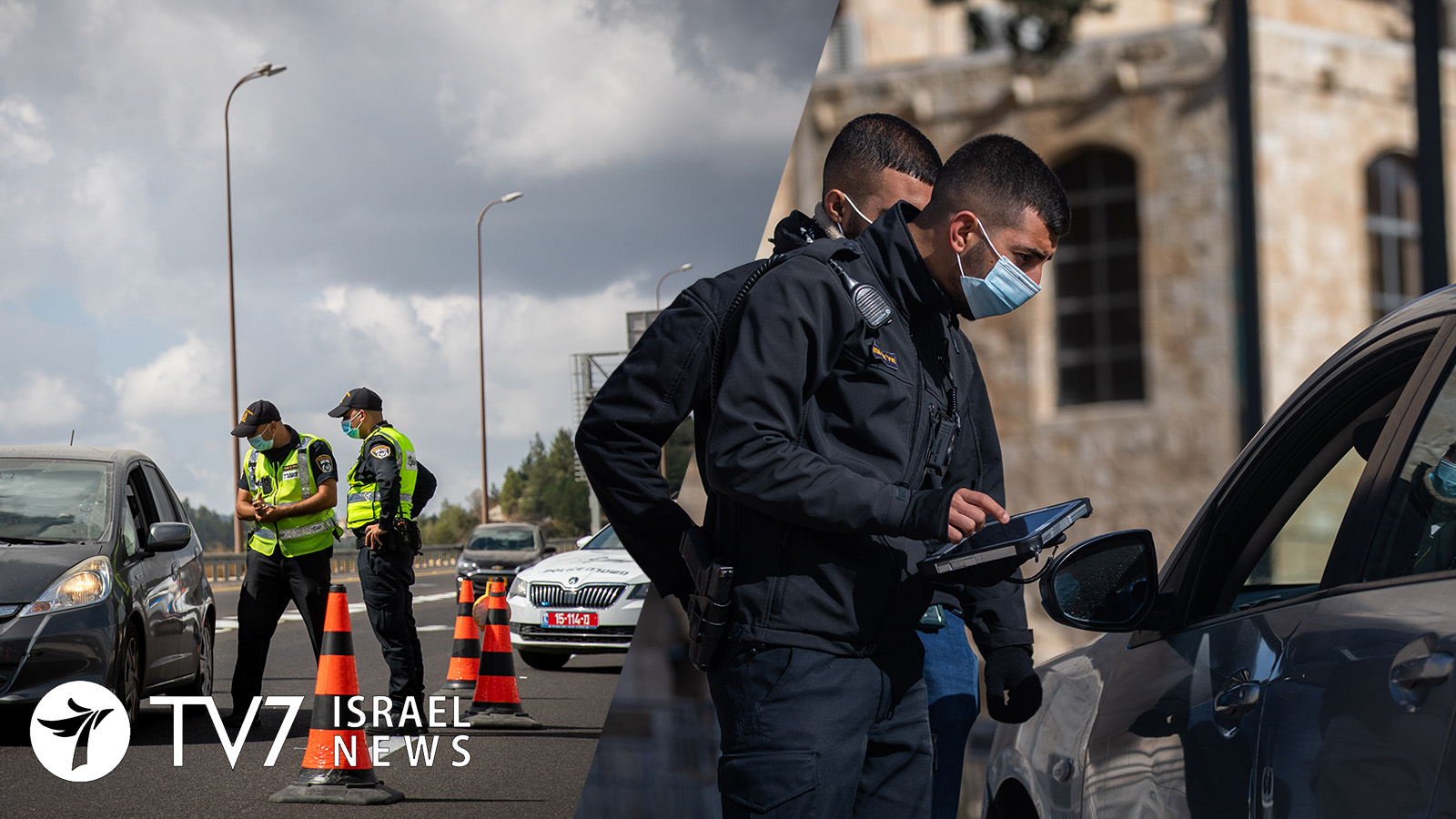Israel is set to impose new restrictions at midnight tonight, in a tightening of an ongoing lockdown aimed at curbing spread of the coronavirus.
466,916 Israelis have tested positive for the disease since its outbreak, and the newest restrictions come amid a recent surge of the disease. 3,527 people have died of COVID-19 related causes.
The Coronavirus Cabinet approved the latest regulations during a conference call last night, which will remain in effect for two weeks until 21 January 2021. This is the country’s third nationwide lockdown.
Following are lists of new and existing regulations according to a joint statement obtained by TV7 from the Prime Minister’s Office, Health and Finance Ministries:
New Restrictions:
- A maximum of 5 people are permitted to meet in a single closed area, with up to 10 if outdoors. Exceptions will be made for weddings, circumcisions and funerals (in accordance with existing limits), allowing for 10 people in a closed spaces and 20 in an open areas.
- No one is permitted to fly out of the country unless their tickets were purchased ahead of tonight’s closure, except for reasons detailed in the regulations or with approval from the Transportation Ministry Director General.
- Restriction of professional sports activity so that venues for training for premier league games may not be operated except for training only.
- Cancellation of permission to leave a residence for activity to counter isolation for senior citizens (except for essential social work activity).
Education:
- There is a prohibition on opening educational institutions to learners and employees except for special education and exceptions determined by law.
- Closed boarding institutions for up to 30 days without the possibility of readmitting pupils who have left the institution.
Employment:
- Employees may not enter their places of work except for places of work for which exceptions have been made including those that provide essential and vital services and those engaged in construction or infrastructure work.
- All employers shall be entitled to allow employees to go to their place work if their presence is necessary for its maintenance or continued functioning. This includes necessary repairs, security, deliveries, payment of wages, etc. Specific instructions were determined for enterprises with special permission to employ workers during hours of rest, security industries, government ministries, local councils, religious councils and institutions of higher education.
- Lawyers have been added to the list of essential places of work under the regulations in instances where they are representing or preparing to represent clients in court or in other institutions, or are providing essential services to clients that will not admit delay and cannot be performed digitally. Included in the foregoing are employees of the Central Elections Committee and regional elections committees who are working on the upcoming Knesset elections.
- Employers who meet the various conditions and continue to operate will do so under the purple badge standard.
* A list of work sectors for which exceptions have been made will be published on the Finance Ministry website.
Transportation:
Occupancy on public transportation will be reduced to 50% of capacity (including on buses)
Participation in political party primary elections:
- Person voting in political party primary elections may leave their residences to do so. The foregoing includes candidates and service providers on behalf of candidates or parties, in order to prepare for Knesset and political party primary elections.
- Polling places for political party primary elections may be operated.
- People entering polling place locations will not be asked about the existence of symptoms that do not require quarantine so as not to impair their right to vote because of these symptoms. There will be no questioning of those arriving at designated polling places for people under quarantine.
Existing regulations which remain valid :
(Violation fines: NIS 500)
- Restrictions on going out from one’s place of residence beyond 1,000 meters, apart from exceptions such as going out to be vaccinated, receive medical treatment or social work care, attend a demonstration or legal proceeding, do individual exercise (without use of a vehicle), transferring a minor between separated parents, going to a permitted place of work or to permitted educational activity, or going out to attend a funeral, wedding or circumcision (subject to the restrictions on gatherings).
- A prohibition on leaving one’s place of residence in order to be present in another person’s place of residence.
- Closure of public and commercial places except for essential stores: Food, hygiene, optical, pharmacies, and electric products and products that are necessary for essential home repairs.
- Closure of guest units and B&B’s, zoos, safari parks and nature reserves, national parks, national and commemorative sites, places for giving non-medical treatment including beauty and cosmetics treatment, places for giving complementary medical treatment, drive-in cinemas, malls, markets and museums. The option of opening an eating establishment for pick-up service is cancelled.
- Practical driving lessons are cancelled; organizing – or participating in – an organized hike is prohibited.
- Take-away service is prohibited; delivery service is permitted.
The tightened closure comes ahead of today’s expected delivery of the first shipment of Moderna Inc. coronavirus vaccines in Israel.
Prime Minister Benjamin Netanyahu said in a statement last night that the doses will be administered to people confined to homes or otherwise unable to go to clinics.
While the Premier’s statement did not detail the size of the shipment, Moderna said on Monday that Israel had secured 6 million doses.
Israel has been administering Pfizer Inc /BioNTech SE vaccine since 19 December. The Ministry of Health Ministry announced that as of yesterday, about 16% of of the nation’s 9 million citizens have received a first shot.
